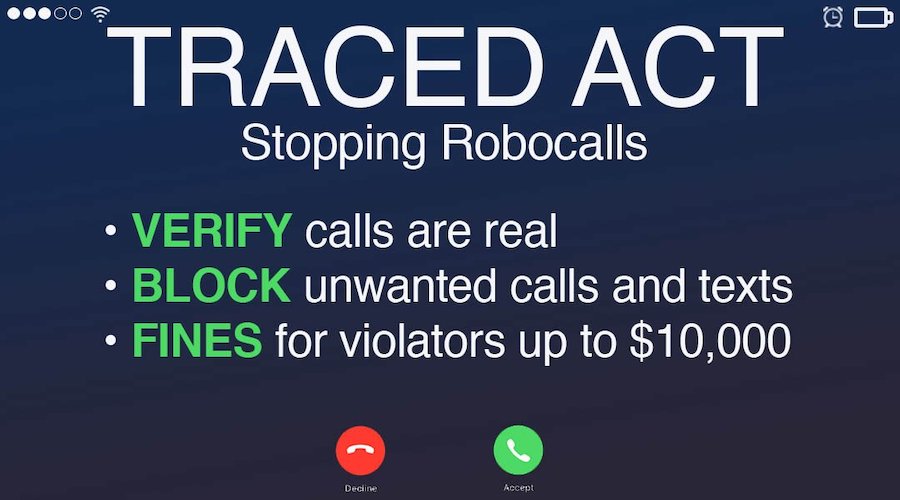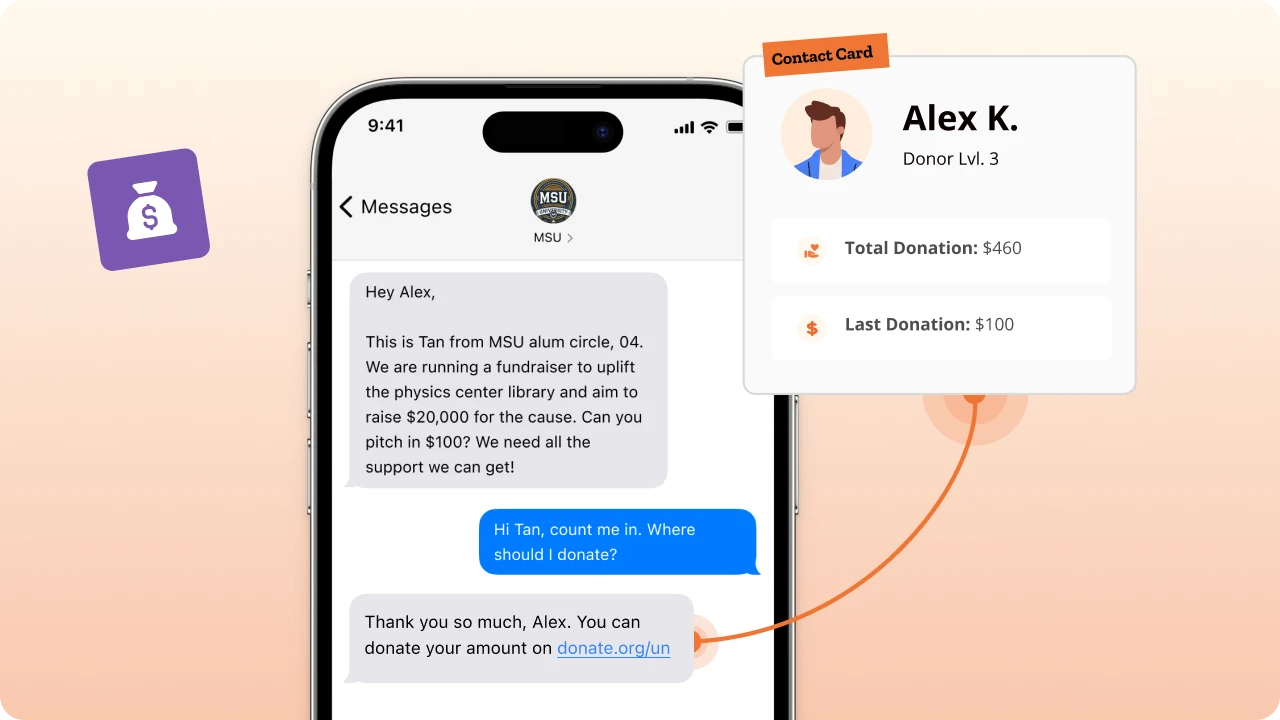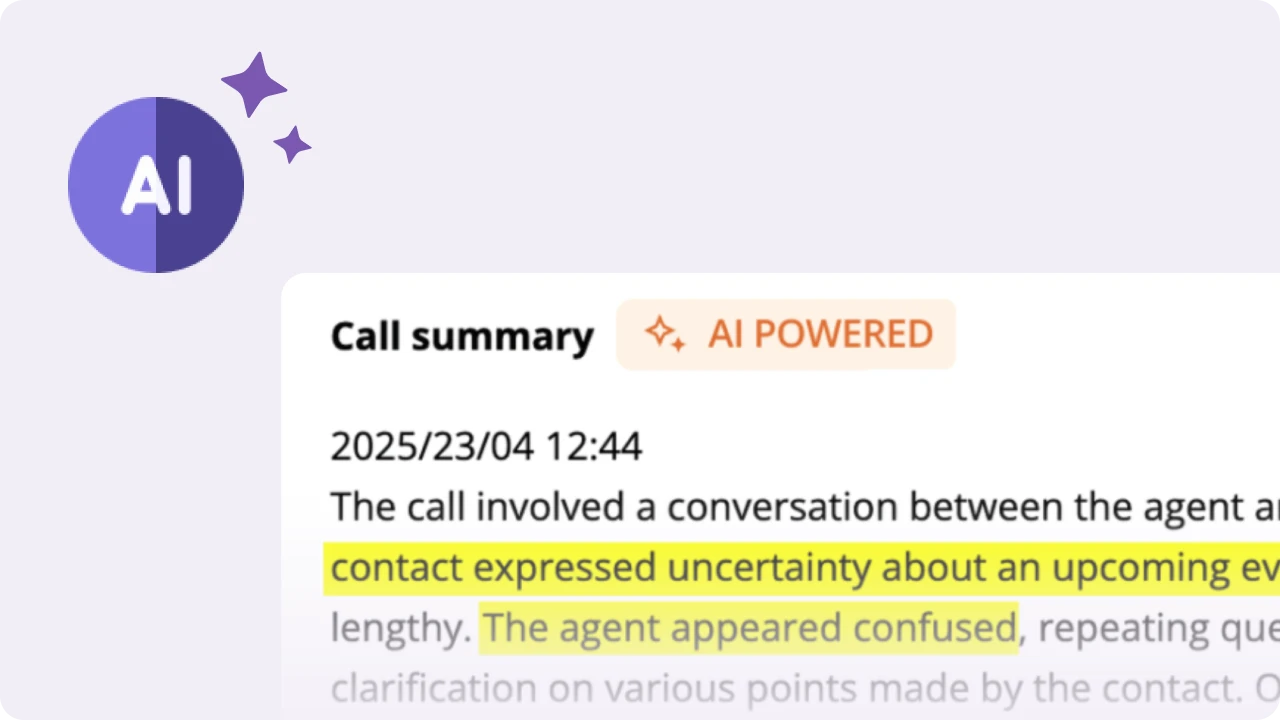Table of Contents
Nothing unites a divided house like robocall laws. In January 2020, the TRACED Act was signed into law with unprecedented bipartisan support.

The Act is primarily focused on requiring phone companies to take more responsibility in stopping illegal robocalls. Importantly, it also requires carriers to adopt caller ID authentication technology (known as STIR/SHAKEN), which was fully implemented by mid-2021. This works with a caller identification service to help validate phone numbers and reduce scam calls.
Today, most major phone companies automatically block calls or flag suspicious robocalls before they ever reach consumers. Many rely on built-in call blocking services to protect households from fraudulent political calls or scam calls.
For political campaigns, that subtext is crucial: Robocalls, while still protected under free speech principles, are increasingly treated as a nuisance rather than a legitimate communication tool.
What does that mean for your political phonebanking campaigns?
That means:
- Always check federal and state laws before dialing.
- Voters may not welcome phone calls from illegal robocallers, even if your message is relevant. Many associate them with scams, spam, or caller id spoofing.
- Every message must be legally compliant, including proper identification, callback details 9contact information), and respect for opt-outs.
This article will walk you through how current robocall laws apply to political campaigns and help you find best practices for running a successful voter outreach effort.
Is it still legal to use robocallers for political campaigns under robocall laws?
Yes, you can legally use robocallers for outreach campaigns. However, you need to stay compliant.
- You may call any registered voter’s home phone (landline) without prior consent, as long as you comply with hour-of-day restrictions and disclosure rules.
- You cannot call cell phones with an automated or prerecorded voice messages unless the voter has provided consent. Campaigns must obtain proper consent in advance.
- Text messages follow the same rules. Valid consent includes a voter opting in via form, event signup, or checking a box for campaign updates.
Every robocall must:
- Identify the candidate or committee at the very start of the prerecorded voice message.
- End with a callback telephone number and campaign contact information that connect to a live person.
It is also important to check the state-level regulations. Since 2021, several states have passed “mini-TCPA”(Telephone Consumer Protection Act rules) that create their own restrictions. These include:
- Written consent requirements.
- Limiting call frequency (e.g., 3 calls per 30 days).
- Banning certain dialer technologies (originally designed for debt collection calls).
States like Maryland, Oklahoma, New York, Florida, Washington, and Michigan have particularly strict laws.
Read Also: Maintaining TCPA compliance during political calls.
Robocall laws
Here’s what you need to know about robocall laws in 2025 under the FCC (Federal Communications Commission) and TCPA (Telephone Consumer Protection Act) :
AI-generated voice ban
Under the Telephone Consumer Protection Act rules, AI-generated or deepfake voice messages in robocalls are illegal. Make sure you are using human-recorded audio for robocalls.
Opt-out revocation rules
If a voter opts out, you must stop future automated phone calls and texts. Tools like CallHub automatically process STOP replies and update phone numbers on your DNC list. Managing revocations in a reasonable manner helps you stay compliant.
Here’s how: How You Can Make the Best Use of Automatic Call Software
State-level enforcement
Many states now ban the use of automatic dialers without consumer consent, bar the transfer/sale of consent, and even require telephone companies to support enforcement actions, while allowing consumers to take legal action for statutory damages (these charges start a $500, and depending on the state, could go up to tens of thousands of dollars).
At the federal level, the Federal Trade Commission and FCC both play key roles in investigating and penalizing illegal robocalls.”
In 2025, sending robocalls and robotexts for marketing purposes (including political campaigns) will require renewed, individual consent for every seller, strict documentation, and prompt opt-out compliance.
State laws may be even stricter, and consumer complaints are driving more lawsuits nationwide.
Read Also: The only TCPA compliance checklist you’ll ever need.
Robocall laws and the First Amendment
Automated calling is generally considered protected under the First Amendment.
However, the government can regulate the telephone numbers used, the technology, and the timing of calls.
Notably, the Supreme Court struck down the government-debt exception for robocalls in 2020, confirming that debt collection calls cannot be treated differently from political calls.
The rules remain content-neutral but tightly regulate methods like caller ID spoofing and robodialers
Read Also: The truth about political phone banking failures.
Robocall laws: Robodialer use cases for political campaigns
Even with strict robocall laws, campaigns can use robodialers effectively. From boosting event turnout to mobilizing supporters, these use cases show how automation works best when paired with compliance:
1. Boosting event turnout
Political events, such as rallies, town halls, and fundraisers, are most impactful when turnout is high. Robodialers make it easy to broadcast invitations quickly and at scale.
An excellent way to boost event attendance is to announce the details via robocalls.
Not only can you convey the message quickly, but you can also utilize interactive robodialers (Press 1 campaign) to collect RSVPs.
| Things to know Political calls to landlines can be made without prior consent but must follow additional restrictions, such as no more than three calls per 30 days. |
Best practices:
- Target landlines for broad invitations; ensure voter phone numbers have documented opt-ins.
- Every prerecorded or artificial voice message must begin by identifying the campaign and end with a callback number and contact information.
- Campaigns also increasingly use personalized, manually dialed calls and compliant SMS alongside robodialers for improved response rates.
2. Faster supporter communication
Efficient supporter engagement is key: robodialers can prompt volunteers to take action, donate, or confirm if they’ve voted, all while maintaining compliance and leveraging automation.
For calls and text messages to mobile numbers, simply ensure you have documented opt-in consent (collected via web forms, event signups, or any clear opt-in method).
CallHub helps you segment contacts, allowing you to easily manage approved mobile numbers and landlines, ensuring that every outreach is both personalized and within legal boundaries.
Here’s how: Understanding list segmentation: a beginner-friendly guide.
Best practices:
- For supporter outreach, use CallHub’s tagging and filters to segment mobile opt-ins and target landlines where regulations allow broader calling.
- Opt-outs (e.g., supporter requests, STOP replies to texts) are processed instantly in CallHub, automatically dropping those contacts from future campaigns per FCC (Federal Communications Commission) rules.
- Supporters engage better when messages reflect their prior involvement. Use CallHub’s CRM sync to track and personalize communications.
- For persuasion or donations, hand off to a live person when possible.
3. React quicker to events (or bombshells)
Politics moves fast, and so should campaigns. When unexpected controversies or breaking news shift public sentiment, robodialers make it possible for candidates to respond immediately and at scale—while still staying mindful of robocall laws.
For example, in August 2025, Indiana media reported robocalls and texts urging action on mid-decade redistricting proposals. Some messages appeared to be linked to a group using the name “Forward America,” though this has not been officially confirmed. The state Attorney General’s office acknowledged receiving complaints and said it is reviewing the matter.
This illustrates how robodialers are not just for get-out-the-vote efforts—they can also deliver rapid, high-impact communication when legislative priorities or public narratives change overnight.
When do robocalls with robodialers backfire?
Despite such excellent examples of robodialers helping political campaigns, there are times when it completely backfires.
Automated calls can spread messages quickly and cheaply, but they can also alienate voters. Many campaigns have learned that overusing robocalls can irritate potential supporters, especially when they are simultaneously targeted by multiple campaigns.
Another recent trend complicates things: under STIR/SHAKEN regulations, many carriers now automatically filter or block suspected robocalls if the caller ID looks questionable. This means your message may not even reach a voter unless your campaign number is properly verified.
To avoid these pitfalls, campaigns should:
- Limit the volume and frequency
Use robocalls sparingly for critical GOTV reminders, event notifications, or urgent announcements — not as the main outreach channel. - Mix robocalls with personal outreach
Pair automated calls with phone banking software or peer-to-peer texting for follow-ups that add a personal touch. This ensures voters feel heard, not spammed. - Verify caller IDs under STIR/SHAKEN
Always register and verify your numbers so calls are less likely to be flagged or blocked. CallHub’s Spam Label Shield ensures your campaign number stays clean and trusted. - Use call scripts wisely
Keep robocalls short, clear, and action-driven (e.g., “Remember to vote tomorrow at X location”). Save persuasive or nuanced conversations for live agents.
Read Also: The complete guide to creating an effective robocall campaign.
Robocall laws best practices
To maximize effectiveness while staying on the right side of the law, follow these guidelines:
- Target wisely: Send robocalls only to audiences that will find the message relevant.
- Segment lists carefully: Make sure numbers, names, and preferences are up-to-date.
- Respect consent: Never send automated calls or texts to cell phones without explicit permission.
- Use verified caller identification services: Authentication greatly improves the odds that your call is delivered.
- Combine outreach: Pair phone banking with SMS and email for stronger engagement.
- Respect one-to-one consent: Never place automated calls or texts to cell phones without explicit permission from the voter first.
Read Also: Here is a quick political phone banking guide for campaigns.
How to choose the best robodialer software for your campaign
To truly set your campaign apart and give you a winning edge over your competition would mean investing in the right software for your voter outreach.
While picking the robocalling software for your campaign, here are some characteristics you will need to consider:
1. Data security and privacy
Voter data is highly sensitive, and protecting it should be your top priority. Always choose a robodialer that offers:
- Strong encryption to keep your data safe from breaches.
- Strict confidentiality policies (SOC2, GDPR, TCPA, HIPAA) ensure your voter lists are never sold or misused.
- Secure integration with your existing database.
A secure system protects your campaign’s reputation and builds trust with your supporters.
2. Ease of use
Your robodialer should simplify your outreach, not complicate it. Complicated tools can waste time and reduce volunteer productivity. Look for software that offers;
- An intuitive dashboard that’s easy to navigate.
- Quick setup for campaigns without technical headaches.
- Simple training for volunteers, allowing them to spend less time learning and more time engaging with voters.
The goal is efficiency. Your team should focus on connecting with voters, not troubleshooting software.
Read Also: Thinking Outside the Box: Cool Volunteer Recruitment Methods
3. Integration with other campaign tools
Your voter outreach doesn’t happen in isolation. A good robodialer should integrate smoothly with your CRM, voter database, and other communication tools.
For example, CallHub integrates with NGPVAN’s VoteBuilder using a two-way sync:
- Voter data automatically updates in both platforms.
- Campaign responses, event attendance, and message replies are synced instantly.
- Your segmentation and targeting become far more accurate.
This kind of integration saves time, reduces data loss, and improves campaign efficiency.
Read Also: How to run a multi-channel advocacy campaign with CallHub.
4. Cost vs. value of robocall laws
While cost matters, don’t base your decision solely on price. A cheaper robodialer that lacks essential features could cost you more in missed opportunities. Instead, focus on:
- Whether the tool meets your campaign’s unique needs.
- The long-term ROI is improved through better engagement, which leads to better results.
- Flexible pricing models that scale as your campaign grows.
Think of your robodialer as an investment in your campaign’s success, and not just another expense.
What’s next with Robocall laws?
Choosing the right robodialer software can transform your voter outreach, enabling you to reach more people, personalize communication, and enhance campaign efficiency.
The key is finding a solution that’s secure, easy to use, fully integrated, and delivers real value for your investment.
Don’t wait until your competition gets ahead. Start winning voters with CallHub today!
Frequently asked questions about robocall laws
Here are some common questions answered about robocalls, spam calls, and the latest legal requirements to help you stay informed and compliant:
What is the new law on robocalls?
AI-Generated Voice Ban
Under TCPA rules, using AI or deepfake voices in robocalls is illegal. Always use human-recorded audio for outreach.
Opt-Out & Revocation Rules (Full enforcement by April 2026)
If a contact opts out of one automated message, you must stop sending them any automated messages going forward. Manual calls or other permitted outreach can continue as long as they follow compliance rules. Enable auto STOP handling and DNC syncing in CallHub to stay compliant.
State-Level Enforcement
Many states ban automatic dialers without explicit consent, prohibit selling consent, and allow consumers to sue, where fines start from $500 per violation and go up to tens of thousands of dollars.
Bottom line: By 2025, renewed, documented consent is required for every seller, AI-generated voices are banned, and opt-out compliance is critical. State laws may be stricter, so ensure your robodialer, like CallHub, supports full compliance.
🔼 Refer to the Robocall Laws above in the article for further reading.
What makes a robocall illegal?
A robocall is typically illegal if made without prior express written consent for telemarketing, especially to cell phones or using prerecorded/artificial voices.
Other illegal practices include:
- Spoofing caller IDs to mislead the recipient.
Use of AI-generated voices, which the FCC (Federal Communications Commission) now classifies as artificial and thereby subject to TCPA rules; such calls are now explicitly illegal
What is the legal action for robocalls?
Consumers have significant legal remedies under the TCPA:
Penalties may also be levied against the call sender or the provider under the TCPA (Telephone Consumer Protection Act) and Do-Not-Call rules.
They can sue for $500 – $1,500 per violation, depending on whether the robocall was willful.
They can file complaints with the FTC (Federal Trade Commission) or FCC (Federal Communications Commission).
Is there a law against spam calls?
Yes, the TCPA of 1991 and related FCC (Federal Communications Commission) rules impose restrictions on robocalls, especially automated, prerecorded, or artificial voice calls without proper consent.
The National Do Not Call Registry, maintained by the FTC, allows consumers to opt out of telemarketing calls. Telemarketers must honor this list or face penalties.
Spoofed or deceptive calls are also prohibited under anti-fraud laws.
How many times can a telemarketer call before it’s harassment?
While there’s no federally stipulated numeric limit, the TCPA sets time-of-day restrictions. No calls before 8 a.m. or after 9 p.m. local time. Each state has its own stipulation, so ensure you check local permissible timings before launching campaigns.
Click here to check state-wise timing.
Harassment could result if calls are repeated, excessive, threatening, or meant to alarm. State or local laws may also impose specific caps on call frequency.


